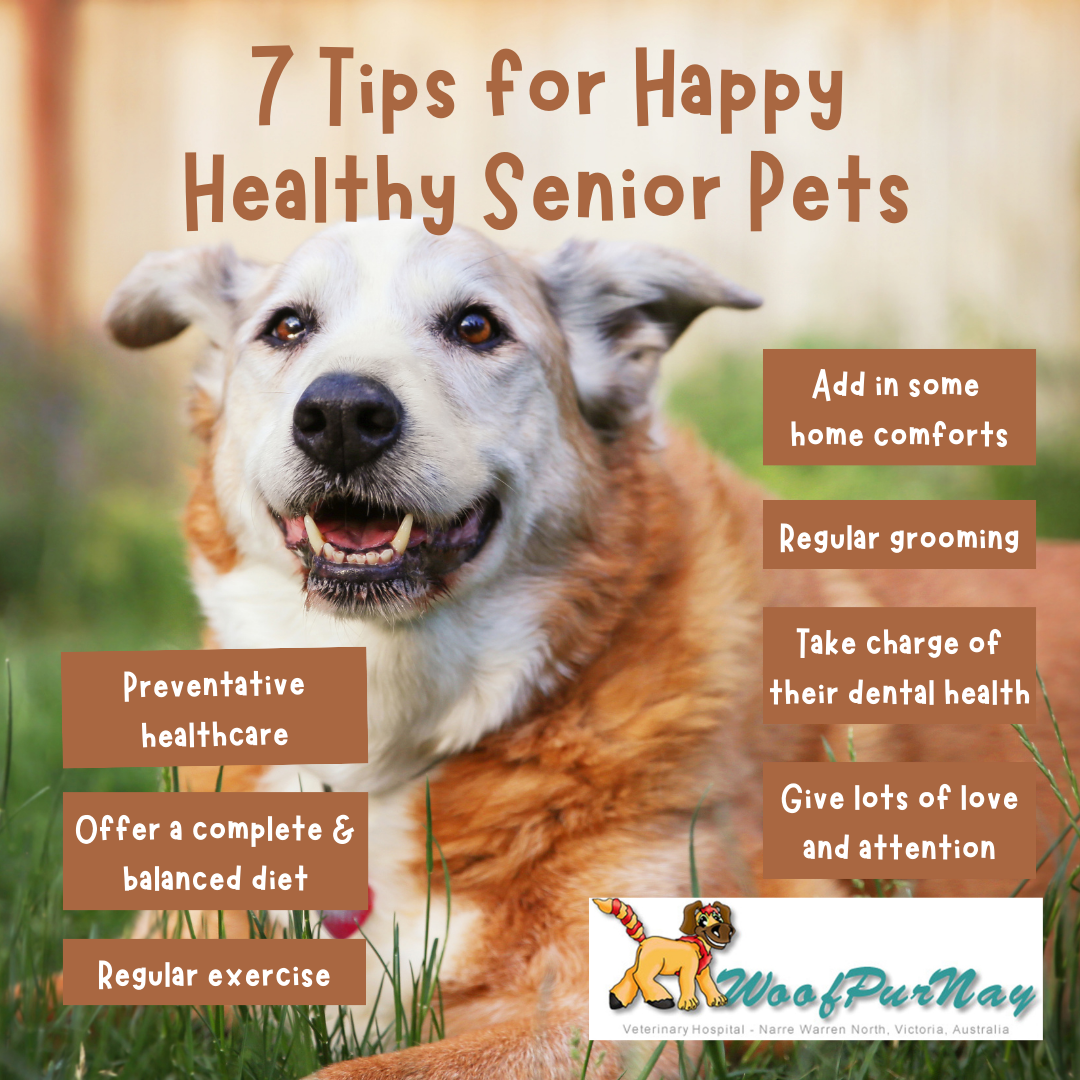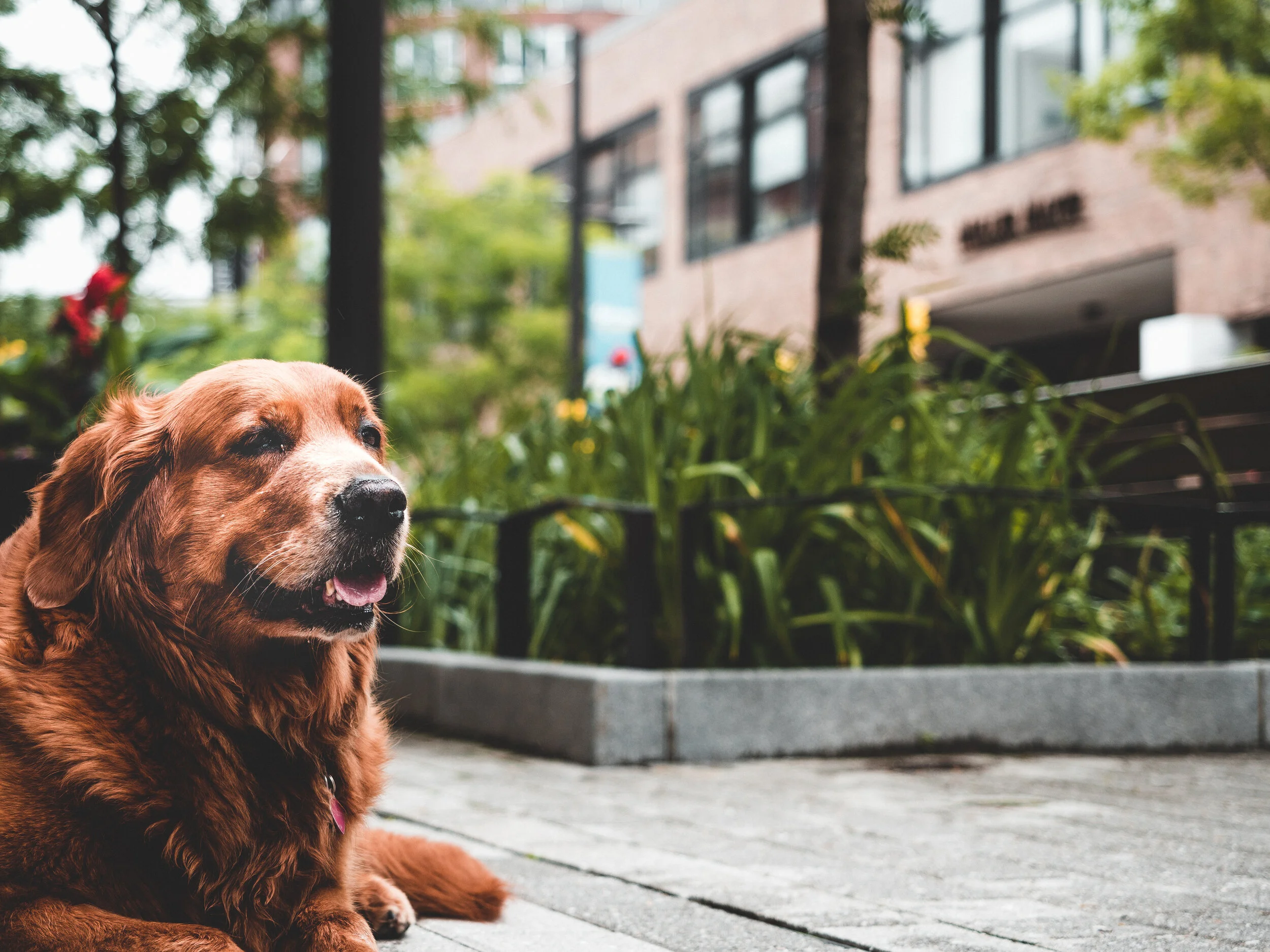7 Tips for Happy Healthy Senior Pets
Ageing is a natural part of life and enjoying the company of a pet into their senior years can be very rewarding and fulfilling. Many pets are considered to be seniors after seven years of age depending on the type of pet and breed. As they grow older, your pet’s needs change and you may need to make some adjustments to keep your pet happy, healthy and comfortable. Consider these tips to help your senior pet thrive.
1. Preventative health care
As your pet ages, preventative healthcare is critical. This includes yearly vaccinations, parasite control and regular visits to the vet. Twice yearly health checks are recommended for senior pets to ensure early detection and treatment of disease.
Just like humans, there are a number of diseases that are more likely to affect older pets. These can include arthritis, heart disease, kidney disease, cancer and dementia.
Keep an eye on your pet’s overall health and behaviour and talk to your vet if you notice any changes.
2. Offer a complete and balanced diet
A complete and balanced diet is essential for your pet’s health and wellbeing. Older pets often have specific nutritional requirements and may benefit from specially formulated food. Senior pets are also generally less active than younger pets so may benefit from a lower energy, high fibre diet. Our vets can provide you with the best advice about what diet is most suitable for your ageing pet.
3. Regular exercise
Regular exercise that is in-line with your pet’s capabilities is important. Monitor how your pet feels after exercise and adjust their routine accordingly. For example, you may need to take a shorter walking route and make lots of rest stops.
Your vet may advise gentle walks if your dog is overweight or swimming as a therapy for dogs with arthritis. General playtime is also a great form of exercise.
4. Add in some home comforts
There are a number of steps that can be introduced at home to help make your senior pet more comfortable. Watch your pet navigate your home and work towards improving any areas that are difficult or potential hazards. You also want to make sure the areas that they sleep and spend most of their time are comfortable and easy to access.
Ensure your pet has a soft bed in a warm place, away from drafts. Your pet may benefit from a ramp for going upstairs or getting into the car, so they don’t have to jump. Place food and water bowls up a bit higher so they don’t need to bend their neck. For cats make sure their litter tray is easy to access.
Functions like vision and hearing can decline as your pet ages. Keep this in mind if moving furniture around and be careful when walking into a room as it may startle your pet. You might consider using pet gates or removing potential hazards out of the way. You can also add items to improve traction on slippery floors such as carpet runners or rugs.
5. Regular grooming
As pets age they can develop more matting with reduced activity. An incontinent pet also needs their hair clipped around their toileting areas and checked daily to ensure this area is clean, dry and not irritated.
Pay special attention to grooming areas of your pet’s body that are hard for them to reach. Grooming is the perfect time to check your pet for lumps and bumps. If you find a lump or bump on your pet, please make an appointment with one of our vets to have it checked out.
6. Dental health
Dental health is even more important as your pet ages. Look after your pet’s teeth through regularly brushing or have your pet’s teeth cleaned professionally on the advice of your vet. Watch out for common signs of dental disease including:
Red, swollen or bleeding gums
Bad breath
Yellow or brown tartar build-up on teeth
Sore or sensitive mouth
Difficulty eating or reduced appetite
Drooling
Loose teeth or teeth loss
Pawing or rubbing mouth
If you notice any of these signs or have any concerns about your pet’s dental health, give us a call on 03 8784 4444.
7. Lots of love and attention
The most important thing you can do for your older pet is to give them lots of love and attention. Gentle pats and spending time together can be enjoyable for both of you.
Play and social interaction can help keep your pet mentally active. This could include teaching new tricks, indoor games or socialising with other dogs their age. Try to keep games low and gentle so they don’t have to jump or twist to join in.
Enrichment sessions such as a sniff around the property or a chance to dig in the sand at your local beach can help tire them out and keep their mind sharp.
Having a senior pet can be very rewarding. As they age it’s important to make some adjustments to their healthcare and daily routine to ensure they continue to be happy, healthy and comfortable. Please speak to one of our vets if you have any questions about your senior pet.





